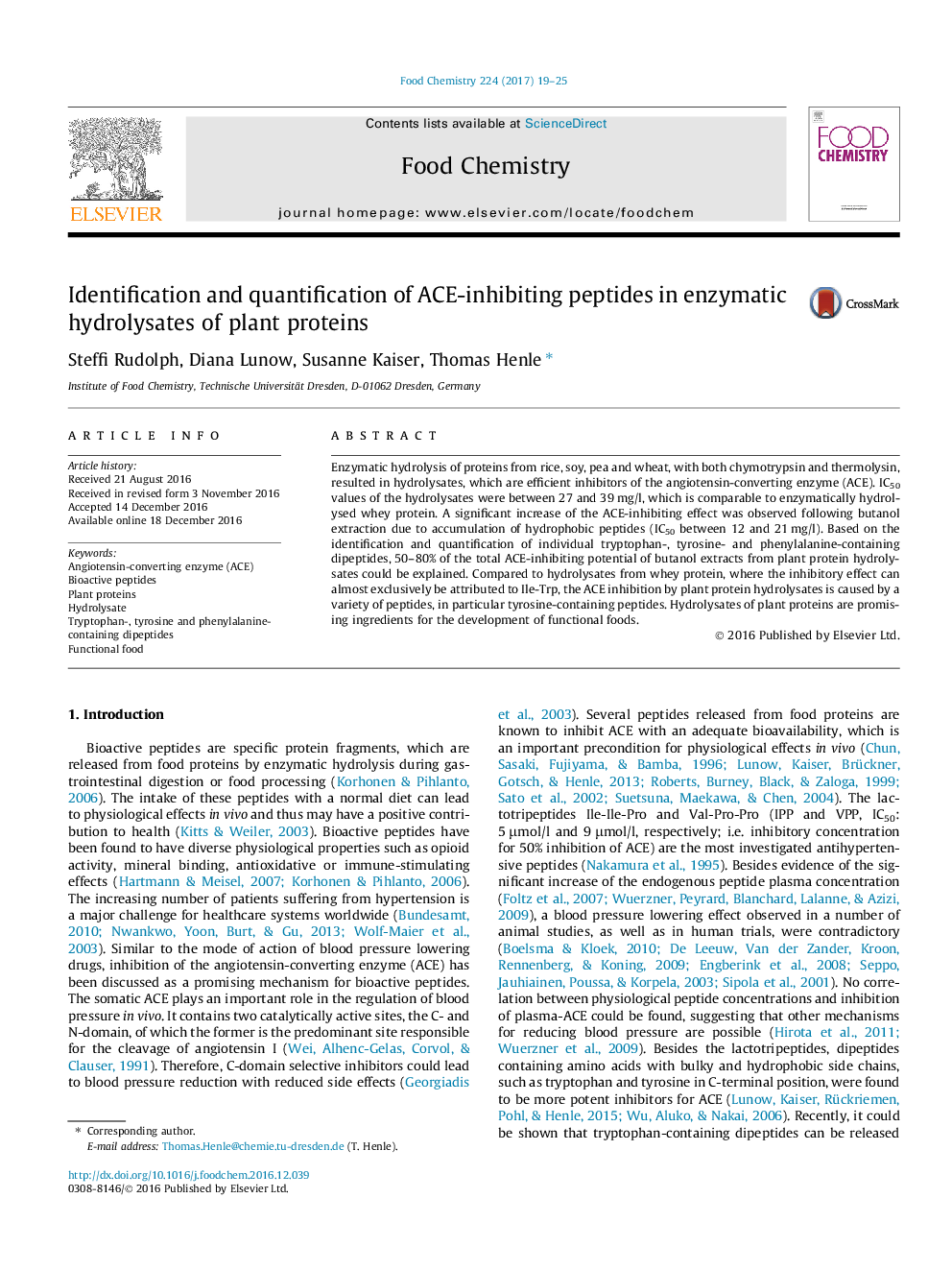| Article ID | Journal | Published Year | Pages | File Type |
|---|---|---|---|---|
| 5133540 | Food Chemistry | 2017 | 7 Pages |
â¢Enzymatic hydrolysates of plant proteins showed an excellent ACE-inhibitory activity.â¢Tryptophan- tyrosine- and phenylalanine-containing dipeptides could be identified.â¢The dipeptides IY, VY, IW and VW substantially contributed to the ACE-inhibitory activity.
Enzymatic hydrolysis of proteins from rice, soy, pea and wheat, with both chymotrypsin and thermolysin, resulted in hydrolysates, which are efficient inhibitors of the angiotensin-converting enzyme (ACE). IC50 values of the hydrolysates were between 27 and 39Â mg/l, which is comparable to enzymatically hydrolysed whey protein. A significant increase of the ACE-inhibiting effect was observed following butanol extraction due to accumulation of hydrophobic peptides (IC50 between 12 and 21Â mg/l). Based on the identification and quantification of individual tryptophan-, tyrosine- and phenylalanine-containing dipeptides, 50-80% of the total ACE-inhibiting potential of butanol extracts from plant protein hydrolysates could be explained. Compared to hydrolysates from whey protein, where the inhibitory effect can almost exclusively be attributed to Ile-Trp, the ACE inhibition by plant protein hydrolysates is caused by a variety of peptides, in particular tyrosine-containing peptides. Hydrolysates of plant proteins are promising ingredients for the development of functional foods.
